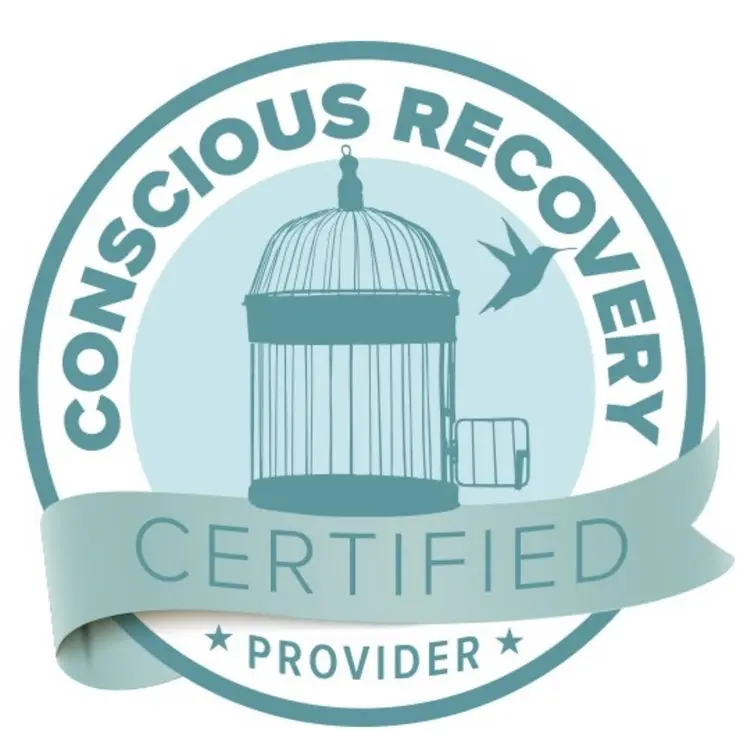In the battle against addiction and other mental health conditions, a fresh perspective can be the key to unlocking lasting recovery and healing. At Monima Wellness in San Diego, we embrace Conscious Recovery, an innovative approach to treatment that focuses on healing the root causes of addiction and mental health issues.
Research has shown that substance use disorders are frequently linked to exposure to traumatic events and childhood trauma, highlighting the need for innovative treatment designed to address the whole person rather than individual symptoms. Our intensive outpatient program (IOP) and partial hospitalization program (PHP) are designed to support women and LGBTQ+ individuals on their journey to recovery by addressing unresolved trauma, spiritual disconnection, and toxic shame. We utilize various evidence-based approaches, including Conscious Recovery, to help our clients begin building a life they can cherish.

As mentioned previously, Conscious Recovery is a groundbreaking approach to addiction and mental health treatment that focuses on the underlying root causes of destructive behaviors. Developed by TJ Woodward, Conscious Recovery is based on the belief that beneath all addictive behavior is an essential self that is whole and perfect. By reconnecting with this authentic self, individuals can break free from the cycles of addiction and trauma and rediscover a life filled with purpose and joy. TJ’s recovery experience was an essential aspect of the inspiration for Conscious Recovery, particularly his shift from feeling damaged and broken to recognizing inherent wholeness. Mary Helen Brownell influenced this pivotal shift.
Understanding the core principles of Conscious Recovery is necessary to grasp how this approach transforms lives. These principles serve as the foundation for healing, guiding individuals to reconnect with their authentic selves and address the underlying causes of their struggles.
By integrating these principles into our treatment programs at Monima Wellness in California, we can provide a unique, comprehensive, and compassionate pathway to recovery for women and LGBTQ+ folks grappling with substance use and mental health disorders. Let’s explore these foundational principles that underpin the Conscious Recovery method and see how they contribute to lasting change and empowerment.
At the heart of Conscious Recovery is the understanding that every individual possesses an essential self that is untouched by addiction and trauma. This core self is inherently whole and perfect, waiting to be rediscovered and nurtured. By connecting with this inner essence, individuals can find the strength and clarity to overcome their struggles and embark on a healing path.
Addiction is often seen as the problem, but Conscious Recovery views it as a coping mechanism that has become ineffective. This perspective shifts the focus from blaming oneself for addictive behaviors to understanding them as attempts to manage pain and disconnection. By recognizing addiction as a strategy that once served a purpose, individuals can begin to explore healthier ways to address their needs and emotions.
Effective treatment goes beyond merely addressing the symptoms of addiction. Conscious Recovery emphasizes identifying and healing the root causes of destructive behaviors. This comprehensive approach involves delving into past traumas, unresolved emotional pain, and other factors that have contributed to the development of addiction. Individuals can achieve more profound and lasting recovery by addressing these underlying issues. Traditional treatment often delays trauma work, but Conscious Recovery advocates addressing trauma early on to prevent relapse.
Addictive behaviors often stem from unresolved trauma, a sense of spiritual disconnection, and toxic shame. These root causes create a cycle of pain and avoidance that perpetuates addiction. Conscious Recovery helps individuals identify and heal these deep-seated wounds, fostering a sense of wholeness and connection that supports sustained recovery. Through therapeutic interventions and spiritual practices, individuals can release the grip of trauma and shame, allowing their true selves to emerge. Trauma can be physical, mental, emotional, or spiritual and not always immediately apparent (e.g., emotional neglect).
Research supports the efficacy of spirituality-based elements in addiction treatment programs. These differ from religion, similar to 12-step programs, encouraging openness to spiritual concepts without pushing individuals to adopt a particular religion or system of beliefs. As of 2019, approximately 73% of addiction programs in the USA include a spiritual aspect, including 12-step integration and treatment programs, enabling clients to heal faster and attain their wellness goals.
Similar to 12-step integration and other spirituality-based addiction treatment programs, the Conscious Recovery approach offers lasting freedom by adopting spiritual practices and principles. This involves cultivating mindfulness, developing a deeper connection with oneself and a higher power, and embracing practices that promote inner peace and resilience. By integrating these spiritual elements into daily life, individuals can create a solid foundation for ongoing recovery and personal growth. This holistic approach to treatment empowers individuals to transform their lives and achieve permanent freedom from addiction.
Research indicates that women and LGBTQ+ individuals face unique challenges in their recovery journeys, including higher rates of alcohol and other substance abuse in general. Specifically, the LGBTQ+ community is more likely than their heterosexual counterparts to access substance use and mental health treatment. Unfortunately, these individuals often experience unique challenges that many treatment facilities are not equipped to address.
At Monima Wellness, we have chosen to integrate the principles of Conscious Recovery into our comprehensive treatment programs to address and nurture the unique challenges faced by women and LGBTQ+ individuals. Our comprehensive approach is designed to create a safe, supportive, and nurturing environment where clients can heal from addiction, trauma, and mental health challenges. We facilitate a personalized, gender-specific, and LGBTQ-affirming therapeutic experience to ensure everyone receives the care and support they need to thrive and become the best possible version of themselves.
TJ Woodward, the creator of Conscious Recovery, developed this approach based on his own experiences and observations in addiction treatment. He recognized that traditional methods often failed to address the deeper, underlying issues that contribute to addiction and mental health struggles. TJ Woodward created a program that empowers individuals to reconnect with their true selves and achieve lasting recovery by focusing on conscious awareness, self-discovery, and inner healing.
The Conscious Recovery approach at Monima Wellness in San Diego, California, offers numerous benefits for women and LGBTQ+ individuals seeking to overcome trauma, addiction, and mental health challenges. Based on our experience, these often include but are not limited to:
If you or a loved one is struggling with addiction, mental health challenges, or trauma, we invite you to explore the transformative power of Conscious Recovery at Monima Wellness. Contact us today to learn more about our programs and to schedule a consultation. Together, we can help you rediscover your true self and build a life filled with purpose and joy.

If you or a loved one is struggling with addiction, mental health challenges, or trauma, we invite you to explore the transformative power of Conscious Recovery at Monima Wellness. Contact us today to learn more about our programs and to schedule a consultation.
Find out if Monima is the right treatment center for you or your loved one. Please note: we are an insurance-friendly organization.

